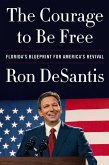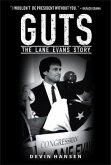On January 6, 1941, President Franklin Delano Roosevelt announced his Four Freedoms: freedom of speech, freedom of religion, freedom from want, and freedom from fear. Roosevelt's call for the Four Freedoms was in part a response to the totalitarian governments then on the march in the world, especially Hitler's Germany and imperial Japan. But they were an important announcement about the United States as well.
The first two, freedom of speech and religion, were not controversial, as they were rooted deeply in American values since the founding. But after the onset of the Great Depression, FDR and the Democratic Party placed freedom from want and fear as core values of the American experiment, with government playing a leading role in alleviating such conditions. This was controversial at the time, with conservatives opposed to such a role for government.
This dichotomy is familiar to us today, with liberals supporting an active role for government in society to promote the twin goals of liberty and equality. Meanwhile, conservatives see government as a threat to liberty and view inequality as the natural outcome of the differing talents and skills that people possess. What may not be so well-known is that the position of modern liberals for active government is diametrically opposed to that of the founder of the Democratic Party, Thomas Jefferson. And active government was supported by the conservative Alexander Hamilton and the Federalists during the founding era and through a good part of our history.
In The Great Flip, Donald J. Fraser takes the reader through a tour of American history, showing how liberals and conservatives gradually flipped positions on the role of government in American life. From the colonial era through the Great Depression, Fraser introduces us to some of the key players in the history of the United States and how they impacted the nature of governance in America. The rivalry for political power between Thomas Jefferson and Alexander Hamilton during the founding era, and Herbert Hoover and Franklin Roosevelt during the Great Depression, represent the bookends for this work of history.
The first two, freedom of speech and religion, were not controversial, as they were rooted deeply in American values since the founding. But after the onset of the Great Depression, FDR and the Democratic Party placed freedom from want and fear as core values of the American experiment, with government playing a leading role in alleviating such conditions. This was controversial at the time, with conservatives opposed to such a role for government.
This dichotomy is familiar to us today, with liberals supporting an active role for government in society to promote the twin goals of liberty and equality. Meanwhile, conservatives see government as a threat to liberty and view inequality as the natural outcome of the differing talents and skills that people possess. What may not be so well-known is that the position of modern liberals for active government is diametrically opposed to that of the founder of the Democratic Party, Thomas Jefferson. And active government was supported by the conservative Alexander Hamilton and the Federalists during the founding era and through a good part of our history.
In The Great Flip, Donald J. Fraser takes the reader through a tour of American history, showing how liberals and conservatives gradually flipped positions on the role of government in American life. From the colonial era through the Great Depression, Fraser introduces us to some of the key players in the history of the United States and how they impacted the nature of governance in America. The rivalry for political power between Thomas Jefferson and Alexander Hamilton during the founding era, and Herbert Hoover and Franklin Roosevelt during the Great Depression, represent the bookends for this work of history.
Dieser Download kann aus rechtlichen Gründen nur mit Rechnungsadresse in A, D ausgeliefert werden.









